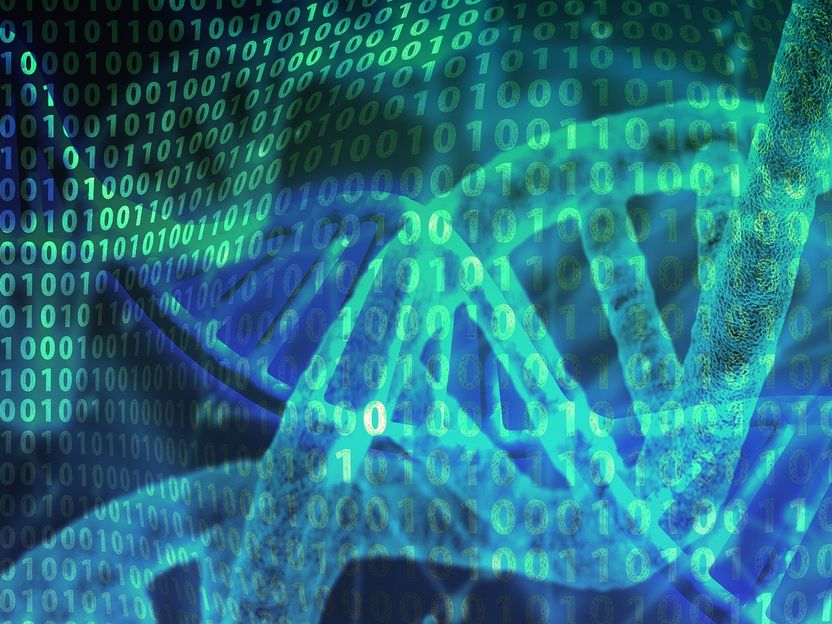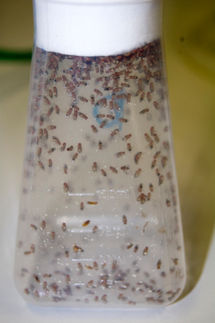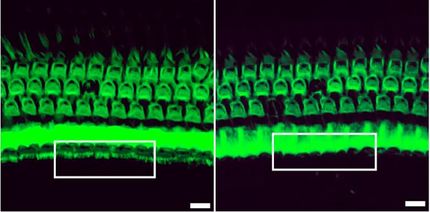Algorithm identifies cancer drivers
Algorithm examines such mutations that lie within so-called mutational signatures
Advertisement
Genetic alterations that promote the development and spread of tumors are difficult to identify. This is especially true for mutations in the non-protein-coding regions of the genome, which include all important regulatory sequences. Scientists at the German Cancer Research Center have now published an algorithm that detects cancer drivers in both the protein-coding and non-coding regions of the genome.

Symbolic image
pixabay.com
Accumulations of mutations in a cell cause cancer to develop and spread. However, only a small proportion of the mutations identified in a patient are responsible for a cell becoming malignant. Such so-called driver mutations give the cells a selective advantage that can cause them to multiply more quickly.
One of the greatest difficulties in cancer research is to determine whether the mutation is a cancer-driving mutation or just a neutral "passenger mutation" that has no effect on the disease. To make this distinction, researchers examine whether the mutation in question is significantly more common in the cancer genome than in the genome of healthy individuals.
"In the protein-coding part of the genome, which makes up only about two percent of the total genome, this works to some extent. But when we look for driver mutations in the non -coding regions, which include all the important regulatory sequences, this method reaches its limits," says Marc Zapatka of the German Cancer Research Center. This is because DNA damage does not occur at all positions of the genome equally and with equal probability. Moreover, very little is known about the consequences of mutations in this part of the genome.
Zapatka and colleagues have now taken a different approach: They have developed an algorithm that examines such mutations that lie within so-called mutational signatures. Scientists use this term to describe the various characteristic traces left in the genome by mutagenic events such as environmental factors (i. e. UV radiation), faulty DNA repair or misdirected enzyme activity. "We know that many of the cancer-driving mutations known today lie within such mutational signatures. Therefore, it seemed promising to us to specifically take a closer look at these areas," Zapatka explains the background.
With the help of the "sigDriver" algorithm, the genome of large cancer cohorts can be searched for mutations in the coding as well as in the non-coding region.
The DKFZ researchers used sigDriver to analyze the genomes of a total of 3813 tumors whose entire genomes had been sequenced as part of the International Cancer Genome Consortium (ICGC), The Cancer Genome Atlas program, and a study of pediatric tumors.
"We were surprised that despite the new approach, the algorithm identified the majority of already known tumor-driving mutations, even in the non-protein-coding region of the genome, which has rarely been considered in these analyses," comments Zapatka.
However, the analysis also revealed previously unknown but potentially tumor-driving mutation hotspots. The team was able to link 32 mutational hotspots to APOBEC activity, of which only eleven were already known and eleven others are potentially regulatory. The acronym APOBEC refers to an entire family of mRNA-editing enzymes that are part of the innate virus defense system in humans: The enzymes attack the genome of RNA viruses at specific sites - but can also cause mutations in the human genome, resulting in known signatures as traces of this damage.
The newly identified mutations must now be confirmed in larger groups of patients, and the cancer-relevant effects of the mutations must be analyzed in detail and possibly verified experimentally. The Heidelberg team is making sigDriver available to expert colleagues worldwide for this purpose.
"We have already found new tumor-driving mutations that can help identify cancer patients with high-risk tumors. We expect that analyzing larger groups of patients with the same type of cancer with sigDriver will reveal even more cancer drivers, especially in regulatory regions of the genome," study leader Zapatka expects.
















































